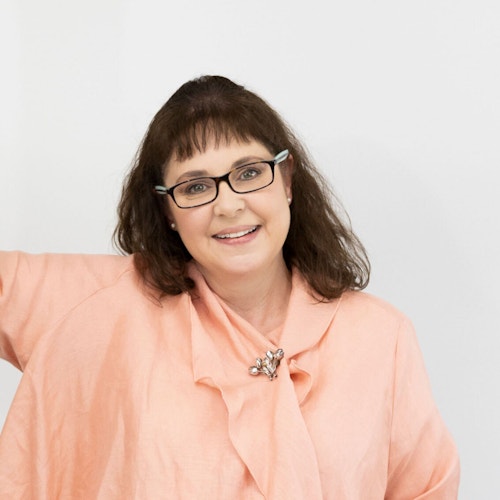
Make March Purple campaign drives epilepsy awareness
Published 12:00pm 1 March 2024

 Words by Jodie Powell
Words by Jodie Powell
The lives of Kallangur’s Kleidon family were turned upside down when son Andrew was diagnosed with epilepsy in 2021.
Mum Leanne says Andrew, now 12, has Focal Cortical Dysplasia – a malformation associated with medically intractable epilepsy, meaning his condition can’t be controlled by medication.
Leanne, who owns Kippa-Ring Gourmet Meats, is sharing her family’s experiences as part of Epilepsy Queensland’s Make March Purple awareness campaign.
“In 2021 we were over at my auntie's place, just sitting outside,” Leanne recalls.
“Mum started talking to Andrew, but he wasn't responding.
“She said he didn't look right, like there was ‘no-one home’ - but I just dismissed it.”
Leanne says that sometime later, they were on the lounge room floor building Lego when Andrew stopped what he was doing and looked straight at her.
“It was so weird - I've never ever seen anything like it in my life.
“I said, ‘Andrew, darling, Andrew, are you okay? Are you okay, sweetie?’.
“And there was no response for a while.
“When he started to come round, he was trying to talk to me but was slurring his words. I didn’t know what to do – I thought he was having a stroke.
“I had decided to take him to the hospital and we were in the car when, suddenly, he said, ‘Mummy, what are we doing?’. He had no idea what had happened.”
Learning curve
Leanne says the family took Andrew to see a doctor and then to hospital for an electroencephalogram (EEG) to measure electrical activity in his brain and were unable to leave hospital until he was medicated because of the number of seizures he was having.
“That in itself is a work in progress - we’re still tweaking medication and trying to get it right.
“I’ve also put him on to CBD (cannabidiol) oil, which is really fantastic because it has meant he doesn't have very long postictal periods (confusion and exhaustion immediately following a seizure) anymore.”
Leanne says Andrew’s diagnosis really shook her.
“I didn’t know anything about seizures, to be honest,” she says.
“People generally have no idea about epilepsy beyond the idea of a seizure as falling over and convulsing.
“Sometimes when Andrew had had a seizure and was in the postictal stage, he would walk around in circles blowing kisses for a couple of hours.
“In the same way, for a long time before he was diagnosed, it would seem as though he was ignoring me, engrossed in his own thing and just not responding.
“Those are just some of the many ways epilepsy can present, but people don’t know.
“Caring for someone with epilepsy makes you such a strong person.
“It really, really does. It teaches you to stay calm, stay positive and stay focused. But it’s incredibly hard,” Leanne says.
Supporting families
Epilepsy Queensland CEO Chris Dougherty says public awareness is critical to helping people navigate the complex experience of living with epilepsy.
“For a condition that’s been recognised in some shape or form for thousands of years, epilepsy remains a surprisingly taboo subject.
“Consequently, its full impact is often unseen, unrecognised and unsupported.
“At Epilepsy Queensland, we’re working hard to deliver individualised support to the people and families affected but, just as importantly, we’re upskilling organisations so that they can better meet the needs of people with epilepsy.
“Ultimately, we want to build an Australia where people with epilepsy feel safe, supported and included, and empowered to achieve their potential.”
Encouraging independence
Leanne says a lack of understanding makes it challenging for people with epilepsy to get a fair go.
“We do things to try to build Andrew’s confidence, but it’s not easy.
“Once, I encouraged him to go into a convenience store by himself and buy a Slurpee.
“He came out really upset and didn’t want to talk to me about it.
“I pressed him and he told me he’d had a seizure when he was trying to pay.
“The girl at the counter kept saying, ‘two dollars’, ‘two dollars’ over and over and over, but he couldn’t speak or move.
“I went in to explain to her and she refused to believe it was a seizure because he wasn’t shaking on the floor.
“We just need people to have a baseline knowledge of epilepsy and a willingness to work with people – not shame them, not exclude them.”
Find out more about Make March Purple.
Related Stories
Top Stories

Please ... pause before you plant
Unitywater is asking residents to pause before they plant, with more than 30 per cent of wastewater pipe blockages and overflows caused by tree roots.


Popular Stories

Pausing to honour Diggers on Remembrance Day
Remembrance Day services have been held across the City of Moreton Bay today to honour fallen Diggers and the men and women who continue to serve our country. See our photo gallery from Redcliffe

New role for Moreton Bay Tourism boss
In a ‘significant milestone for the region’, Moreton Bay Region Industry and Tourism’s CEO Natassia Wheeler has been appointed CEO of Queensland Tourism Industry Council. Here’s what is happening

Long history of community connection at Grace C&K
For almost 60 years, Grace Lutheran Creche and Kindergarten has been a central part of the Redcliffe Peninsula community. We take a look back at its history as it prepares to close its doors













